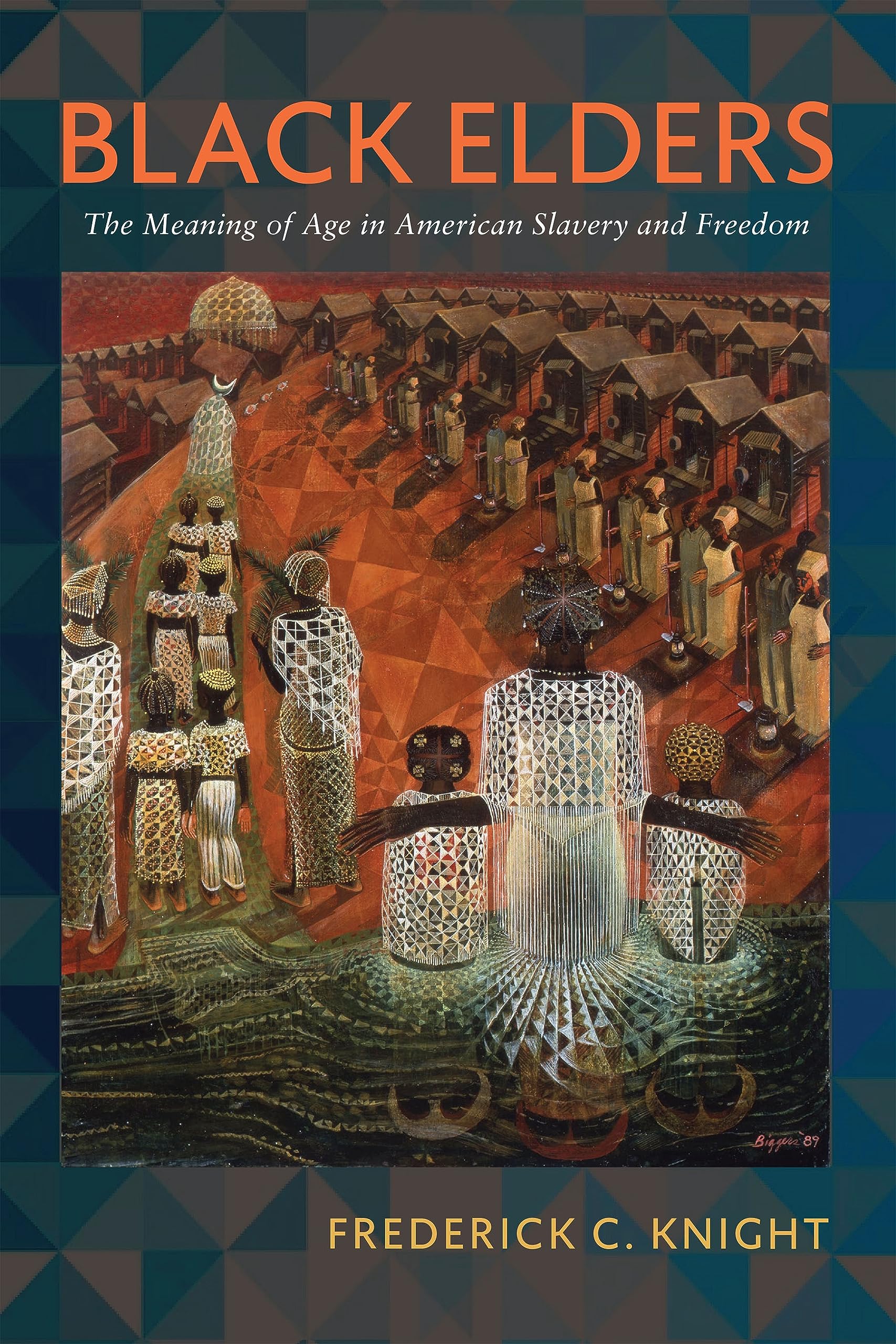
Black Elders: The Meaning of Age in American Slavery and Freedom is a thoughtful and nuanced monograph on the politics and realities of aging in slave societies written by Dr. Frederick C. Knight. Released 2nd Feb 2024 by the University of Pennsylvania Press, it's 248 pages and is available in hardcover and ebook formats.
This is a meticulously researched and annotated survey course on aging and the social effects for the slave culture and society in the history of the United States.
How did slaves' roles change as they aged, in terms of duties and expectations? How were they viewed in Black culture and white culture? While not, strictly speaking, a
rigidly academic ethnography (the identities of the subjects are for the
most part not anonymized), there is an undeniably academic flavor
throughout. As an unvarnished *true* account, with lots of contemporary accounts, letters, historical first person resource materials, etc, it's truly heartbreaking and difficult to read in places. One contemporary account of Ida B. Wells' antilynching campaign discusses quite factually her exile from her home state due to real threats on her life for, in effect, saying that southerners should really stop lynching black Americans. Possibly the most poignant and tragic fact is the mirror to current American society where the voices of sanity and reason are *still* making the same plea to just stop murdering black and brown Americans more than 150 years later.
The author is an academic and this is what I would call a layman accessible academic treatise of the subjects in all their incarnations as they intersect culture and history. As an academic work, it is *full* of annotations, notes, illustrations and minutiae (in a good way). The author definitely "shows his work" in full. I loved poring over the notes and the exhaustive bibliography and full chapter notes and annotations. The notes and references are likely worth the price of admission for anyone interested in the subject and there's obviously been an incredible amount of time spent on research and resource gathering on the part of the author.
The
language is rigorous and moderately formal. It's
definitely not inaccessible for the average reader, but it will take some effort (and that's a good thing). This
would make a good support text for classroom or library use, for history, race studies and allied subjects, as well as a superlative read for the
particularly US history-interested reader. It would be an interesting and appropriate choice for nonfiction book club discussion.
Five stars. This is well and deeply researched and engaging.
Disclosure: I received an ARC at no cost from the author/publisher for review purposes.
No comments:
Post a Comment